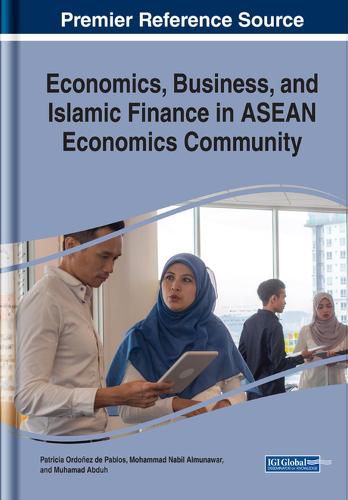Readings Newsletter
Become a Readings Member to make your shopping experience even easier.
Sign in or sign up for free!
You’re not far away from qualifying for FREE standard shipping within Australia
You’ve qualified for FREE standard shipping within Australia
The cart is loading…






This title is printed to order. This book may have been self-published. If so, we cannot guarantee the quality of the content. In the main most books will have gone through the editing process however some may not. We therefore suggest that you be aware of this before ordering this book. If in doubt check either the author or publisher’s details as we are unable to accept any returns unless they are faulty. Please contact us if you have any questions.
The economic integration of Southeast Asia or ASEAN Economic Community (AEC) offers enormous opportunities for its members to develop and collectively collaborate with other economies. Combining the culture of the region with global business in an expanding digital atmosphere, however, has caused numerous challenges on an international scale. Due to the importance of this economic player in Asia, research on key topics including Islamic economics, Islamic finance, technology, and cultural issues in doing business are essential to understand the ASEAN competitive landscape and its relations with other countries.
Economics, Business, and Islamic Finance in ASEAN Economics Community is a pivotal reference source that explores key issues and enhances understanding of business and economics in the ASEAN community and explores the collaboration between this community and Islamic finance and technology. While highlighting topics such as global business, smart manufacturing, and human resource management, this publication explores sustainable development practices as well as the methods of cultural appreciation in economics. This book is ideally designed for deans, heads of department, directors, politicians, policymakers, economists, corporate heads, senior general managers, managing directors, information technology directors and managers, libraries, academicians, researchers, and students.
$9.00 standard shipping within Australia
FREE standard shipping within Australia for orders over $100.00
Express & International shipping calculated at checkout
This title is printed to order. This book may have been self-published. If so, we cannot guarantee the quality of the content. In the main most books will have gone through the editing process however some may not. We therefore suggest that you be aware of this before ordering this book. If in doubt check either the author or publisher’s details as we are unable to accept any returns unless they are faulty. Please contact us if you have any questions.
The economic integration of Southeast Asia or ASEAN Economic Community (AEC) offers enormous opportunities for its members to develop and collectively collaborate with other economies. Combining the culture of the region with global business in an expanding digital atmosphere, however, has caused numerous challenges on an international scale. Due to the importance of this economic player in Asia, research on key topics including Islamic economics, Islamic finance, technology, and cultural issues in doing business are essential to understand the ASEAN competitive landscape and its relations with other countries.
Economics, Business, and Islamic Finance in ASEAN Economics Community is a pivotal reference source that explores key issues and enhances understanding of business and economics in the ASEAN community and explores the collaboration between this community and Islamic finance and technology. While highlighting topics such as global business, smart manufacturing, and human resource management, this publication explores sustainable development practices as well as the methods of cultural appreciation in economics. This book is ideally designed for deans, heads of department, directors, politicians, policymakers, economists, corporate heads, senior general managers, managing directors, information technology directors and managers, libraries, academicians, researchers, and students.